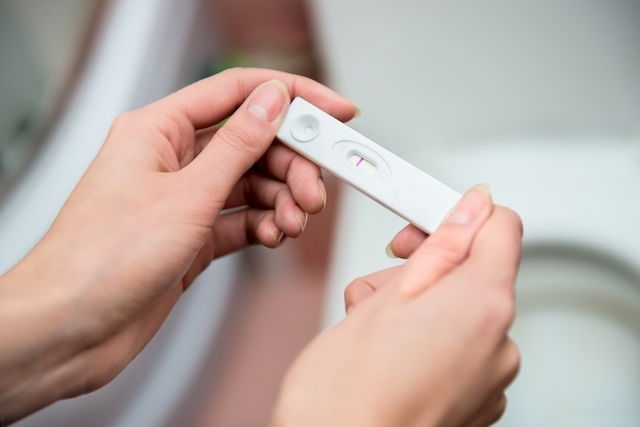To improve your chances of getting pregnant, you can consider trying simple strategies, like having sex during your fertile period and eating specific foods that boost fertility.
Some lifestyle habits that can interfere with conception are drinking alcohol and smoking. These habits can make getting pregnant more difficult and increase risks for fetal malformations.
Women who experience difficulty getting pregnant for a prolonged period of time should consult a gynecologist. This doctor can perform an assessment to identify if there are any underlying conditions interfering with fertility and pregnancy.

Tips for getting pregnant fast include:
1. Have sex during your fertile period
Some women have a better chance of getting pregnant when sex occurs within 3 days of their most fertile day. The fertile period occurs exactly halfway through a menstrual cycle and lasts for 6 to 7 days. It is important to track your menstrual cycle to know exactly when you are most capable of getting pregnant.
If you are unsure when your fertile period is, insert your details into our calculator below:
During these days, you can also use a vaginal lubricant that boosts fertility. These lubricants usually contain calcium and magnesium ions, which help to regulate pH levels in the vagina.
2. Maintain a healthy diet
Maintaining a healthy and balanced diet can contribute to optimal overall health, which can boost fertility.
You should opt for natural and healthy foods such as:
- Whole grains, such as brown rice, whole grain bread, whole grain pasta and oats
- Legumes, such as beans, lentils, chickpeas and soybeans
- Fresh fruits, such as papaya, orange, tangerine, mango, and guava
- Vegetables, such as okra, spinach, pumpkin, chayote and gherkin
- Lean proteins such as chicken, fish, seafood, turkey, eggs and tofu
- Dairy products, such as milk, cheese and yogurt
- Healthy fats, such as olive oil, avocado oil and flaxseed oil
- Nuts and seeds, such as peanuts, Brazil nuts and pumpkin seeds.
It is also important to avoid foods that are high in sugar and fat, such as cookies, chips, ice cream and fast food. These foods promote cell inflammation, which can reduce fertility.
3. Exercise regularly
Excercising regularly can help you to get pregnant because it improves blood circulation, increases sperm production and quality, reduces anxiety and stress, and helps with hormonal balance.
You should aim for at least 30 minutes of physical exercise, at least 3 times a week. This can including walking, weight training, running or swimming.
It is important to remember that excessive physical activity can inhibit ovulation and reduce progesterone levels, which can lower fertility. Therefore, it is important to avoid intense physical activity for more than 5 hours per week.
4. Smoking cessation
Smoking can impede with pregnancy because it increases the production of free radicals. This can cause the ovaries to age and reduce the number of eggs in women. Smoking reduces the quantity and quality of sperm in men.
It is important to remember that secondhand smoke can also lower fertility.
5. Maintain an ideal weight
Maintaining an ideal weight, which is calculated using the body mass index, or BMI, is essential for boosting fertility and helping you get pregnant quickly.
Excess weight alters the production of the estrogen hormone in women, interfering with ovulation and making pregnancy difficult. Excess weight in men reduces testosterone levels and increases estradiol levels in the body, damaging the quality, production and functions of sperm.
Being underweight can also make pregnancy difficult. Underweight people generally fewer fat cells, which are essential for the production of hormones like such as estrogen, progesterone and testosterone.
To calculate your ideal weight, enter your data into our calculator below:
6. Avoid alcohol
Avoiding alcohol can also help you to get pregnant, as regular alcohol consumption can alter the quantity, quality and functions of sperm in men.
Frequent alcohol intake can also alter luteinizing hormone levels.
